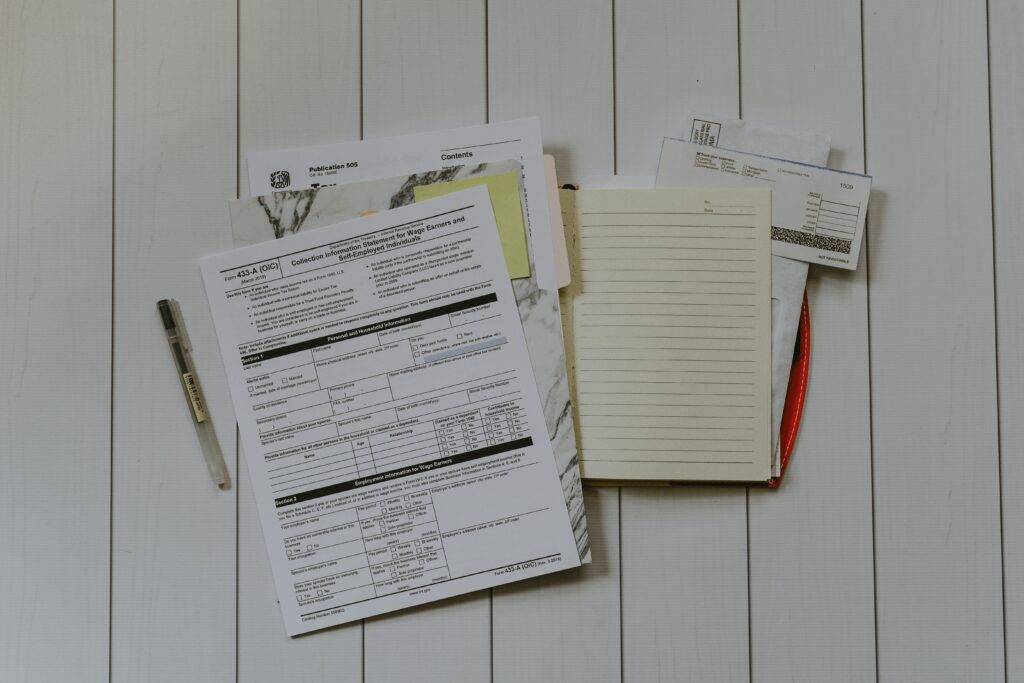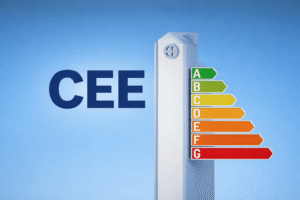In 2023, out of the 640,000 properties sold in Spain, 15% were acquired by foreigners (6% of whom were French). In this context, buying in Spain via a French SCI (a Société Civile Immobilière) is an increasingly popular strategy among savvy investors. Explanations.
What is a SCI and why use it to buy in Spain?
Definition and operation of a SCI
A Société Civile Immobilière (SCI) is a French legal structure allowing several partners to manage a common real estate asset. Each partner holds shares proportional to their contribution.
The SCI is a distinct legal entity, which allows opening bank accounts and taking out loans.
There is no equivalent of the SCI in Spain. Creating an SCI in France to purchase property in Spain offers legal flexibility and real estate advantages (attractive prices, high rental yields, strong rental demand).
Are you in the early stages of your consideration? To delve deeper into real estate acquisition in Spain, explore our dedicated article: Why invest in Spain? or contact us.
Advantages of creating an SCI for a real estate purchase in Spain
There are several advantages to purchasing real estate with other investors through an SCI.
- Collective wealth management
- Financing facilities
- Sharing of costs and expenses related to real estate purchase
- Tax advantages, which we will discuss later
- Simplifying inheritance transmission
Please note that the SCI is not suitable for commercial activities. The SAS or SARL are more appropriate for commercial projects.
Purchasing in Spain via a French SCI: administrative formalities
The creation of an SCI to purchase property in Spain takes approximately 3 months.
Key steps to create an SCI
1. Obtaining the NIE
Each member of the SCI must obtain their Foreign Identification Number. It is essential for any transaction in Spain. To learn how to apply, please refer to our comprehensive article: the Foreign Identification Number. A clarification if you have any doubts: you do not need to be a Spanish resident to obtain an NIE.
A tip: start your application as early as possible, as the processing times vary.
2. Obtaining the Apostilled Kbis Extract
This is the official Kbis extract of the SCI issued in France by the commercial court registry. Copies are not valid. It must be apostilled (authenticated) to guarantee its validity abroad. Visit this official link to submit your apostille request.
3. Translation of the Apostilled Kbis Extract
Once the Kbis extract has been apostilled, it must be translated into Spanish by a sworn translator to be accepted by the authorities on the other side of the border.
4. Obtaining the NIF – Tax Identification Number
To invest in Spain, the SCI must obtain an NIF (Tax Identification Number), the equivalent of the SIRET number in France. This tax number is essential for the registration of assets and tax management in Spain. The NIF is issued by Spanish police stations that have a foreign office or by the Consulate General of Spain in Paris.
Please note: if the SCI is held by a holding company (a parent company), the holding company must also hold an NIF to be fiscally recognized in Spain.
Our teams can direct you to trusted experts to oversee this entire administrative and legal process. Contact us.
Purchasing in Spain via an SCI: what financing options are available?
Financing options for a SCI in France
Most investors who purchase in Spain through a SCI obtain their financing without any difficulty in France. Here's what they can be offered:
- Real estate loans with guarantees on French assets (shares in a Société Civile de Placement Immobilier, a debt-free primary residence, a Retirement Savings Plan, or an Equity Savings Plan).
- Using a holding company's cash flow to finance the purchase via the SCI. A major advantage for entrepreneurial investors who often have more money available in their company accounts than personally. We will return to this in detail.
- Financing via consumer loans (up to €75,000 over 5-7 years in 2024).
Terreta financing tip: inject funds into an SCI via a personal loan
This tip comes straight from one of our customers. It's quite possible to take out a personal loan (as an individual), then inject the funds into the SCI in the form of an associate's current account. In practical terms, you advance the funds to the SCI, which can then repay you progressively, tax-free, since this is not income but simply the repayment of a debt.
✅ Advantage: this method makes it possible to finance part of the operation while optimizing taxation, since future cash flows generated by the SCI can be used to repay you tax-free for the debt it owes you. Clever, isn't it?

Financing options for a SCI in Spain
If you are considering purchasing a property in Spain through a French SCI, financing will primarily be obtained from Spanish banks, unless you have assets in France that can be used as collateral, as mentioned earlier. This is common practice in Spain, but keep in mind that some banking institutions may be more cautious than others.
To optimize your chances of obtaining a loan, it is recommended to contact specialized local institutions.
- The Welcome Hub Sabadell in Barcelona is a valuable resource, ideal for international buyers. Sabadell offers competitive interest rates, generally for average terms of around 20 years.
- UCI offers loans over a longer term (30 years), but with higher interest rates, often exceeding 5%.
What documents are required for a financing application in Spain?
Prepare a complete file for your financing application, including:
- Your passport
- Your NIE number (Foreigner Identification Number)
- Proof of income
- Savings statements
- A solvency report from your country of origin
Careful preparation of these documents will increase your chances of obtaining financing tailored to your property purchase project in Spain through your French SCI.
What is the process for buying in Spain through a SCI?
Once the SCI is being created, you can launch your real estate project in Spain. On the other side of the Pyrenees, real estate transactions are much faster than in France (3 months vs. 6 months in France).
The 5 key steps for investing in Spain via a French SCI
- Prospecting: searching for and selecting the property can be started at the same time as your administrative procedures.
- Negotiation and purchase offer: property reservation (la reserva) and payment of a deposit (generally, €1000).
- Legal and technical due diligence: in Spain, it is the buyer's responsibility to ensure that the property is in good order before becoming the owner.
- Signing of the preliminary sales agreement (contrato de arras) and payment of 10% of the property value.
- Signing of the official deed before a notary.
We would like to draw your attention to the following points:
- In Spain, the preliminary sales agreement is very binding;
- The notary's role is minimal, and the buyer bears significant responsibility. It is advisable to consult a specialized lawyer to avoid errors and, ultimately, damages.
- There is no cooling-off period as there is in France;
- Most of the time, conditions precedent are rejected.
Terreta Spain's advice: allow sufficient time in the preliminary agreement to obtain the NIE and NIF before signing the official deed. Above all, entrust your project to local real estate experts. Our teams can assist you. Make an appointment with them directly online.
Acquisition costs (notary, lawyer, taxes) in Spain
An important point to consider when preparing the financial structure of your property purchase project through a SCI in Spain: acquisition costs. They generally represent 10 to 15% of the property price and include:
- Notary fees;
- Lawyer's fees: they secure the transaction, manage the legal and administrative aspects of the transaction, and help avoid common pitfalls.
- Local taxes, the ITP, (Impuesto sobre las Transmissions Patrimoniales, which must be paid at the time of purchase) in the first place.
Buying in Spain via a French SCI: tax optimization
Real estate investment through an SCI in Spain offers a significant tax advantage compared to a direct personal investment: it allows you to invest company funds in real estate, avoiding the tax levy associated with the distribution of dividends.
- Flat tax savings: by using an SCI, the entrepreneur avoids the dividend distribution process, which would be necessary for private investment. This strategy saves the 30% flat tax.
- Optimized investment mechanism via a holding company: the operating company can directly lend the funds to the SCI. This loan can be gradually repaid by the SCI through rental income, as part of a rental activity. The interest paid by the SCI to the lending company is tax-deductible for the SCI.
- Increased flexibility and control: by using the operating company to lend directly to the SCI, the entrepreneur retains more direct control over the real estate investment and the management of financial flows between the two entities.
Example of a financial arrangement for investing via an SCI in Spain
An entrepreneur has €100,000 in the treasury of their SASU (Société par Actions Simplifiée Unipersonnelle - Single-Shareholder Simplified Joint-Stock Company).
- If they buy a property privately, they will have to pay themselves these €100,000 and pay 30% flat tax, i.e. €30,000. They will then only have €70,000 left to invest.
- However, by investing via an SCI, they could increase their contribution by just over 40% and use the €100,000 they have available. To do this, they simply need to:
- Create a holding company (if it doesn't already exist);
- Transfer the funds from the SASU to the holding company;
- Take advantage of the parent-subsidiary regime, which allows dividends to be exempt from taxation in the holding company. This minimizes the tax impact when transferring funds;
- Contribute the funds to the SCI and invest through it.
Terreta Spain's advice: If you are both the manager of your company and an investor, creating a holding company is an effective strategy to reduce tax and facilitate the transfer of funds between your companies. For a personalized consultation, contact us.

What is the taxation for a French SCI in Spain?
- Taxation of rental income :
- Subject to the Impuesto sobre la Renta de No Residentes (IRNR) [Non-Resident Income Tax].
- Tax rate: 19% of property profits (24% for non-EU residents).
- Quarterly declaration required.
- Tax deductions :
- Possibility of deducting expenses that have a direct economic link with the activity in Spain.
- Renovation expenses are deductible for an SCI, unlike for an individual.
- Corporate Tax :
- Applicable if the SCI is considered a commercial entity.
- Not applicable for simply holding and renting real estate.
- Franco-Spanish tax treaty :
- Avoids double taxation of income.
- Income taxed in Spain is neutralized in France.
- Specificities :
- No IRNR to pay for the SCI, unlike foreign individuals.
- No taxation in Spain if the property is not rented out and is used only by the partners.
- Bank charges :
- Higher for an SCI than for an individual in Spain.
What other taxes should be taken into account?
What other taxes should be taken into account?
- VAT, transfer taxes and other taxes (IBI, the equivalent of property tax for example), the amounts of which vary depending on the Spanish community in which the property is located, but also on the type of property acquired.
- Upon disposal, the capital gain is taxed at 19% if the SCI is held by taxpayers who are not Spanish tax residents.
- Finally, upon inheritance: if the heirs are integrated into the SCI, they do not need to go before a Spanish notary or pay taxes in Spain, as the owner of the property remains the SCI.
Terreta Spain's advice: note that Spanish taxation is complex and that it is advisable to consult an international tax specialist to avoid any confusion. Contact us to be put in touch with trusted professionals on site.
Disadvantage of the SCI: management and accounting fees
It should be noted that purchasing through a SCI entails annual costs of approximately €3,000 (€2,000/year in Spain and €1,000/year in France for the SCI's accounting and declarations). In any case, these costs remain significantly lower than the taxation due in the event of dividend distribution, which generally makes investing through an SCI more advantageous.

Investing via an SCI in Spain: points to consider
Investing via an SCI in Spain is advantageous, but novice investors often make mistakes. These include:
- Poor cost assessment;
- Insufficient document preparation;
- A lack of understanding of local regulations;
- Taking tax risks and paying penalties due to a poor understanding of Spanish tax obligations.
Testimonials from clients who have invested in Spain via an SCI with Terreta Spain
Claude's project (name changed)
As an example and to make things more concrete, let's start by examining Claude's case. He recently invested in Valencia with his partner via an SCI. The purchase was partially financed by a consumer loan in France, and the SCI was created quickly at a lower cost.
- Formalities: creation of the SCI in France and registration in Spain, obtaining the NIE and NIF.
- Financing: €150,000 in total with €100,000 of personal contribution and €50,000 of consumer loan over 5 years.
- Creation of the SCI: completed in one week via an online legal services platform for €1,000.
- Accounting: estimated annual fees: €1,000 to €1,500 in France and approximately €2,000 in Spain.
- Rental management: 50% of the rent for each new contract, no recurring fees.
Testimonial from Pierre (name changed)
Let's move on to another example, that of Pierre, an experienced investor who chose to buy a property in Valencia via an already existing SCI and holding company.
- Pierre invested a total of €350,000, without using credit. The entire sum was contributed by his holding company to the SCI.
- Pierre's holding company owns 20% of the shares in the SCI and transferred 100% of the funds in the form of a current account.
- All dividends returned to the holding company will be tax-free over a long period, as they will be used to repay the current account.
- 80% of the profits generated by the SCI can be distributed to Pierre as personal dividends.
Conclusion
In conclusion, buying in Spain with a French SCI is a profitable and safe strategy. It offers significant tax and wealth benefits. However, it is essential to surround yourself with competent professionals to maximize your chances of success.
Do you have any questions? Do you want to start creating an SCI? Contact the specialized teams at Terreta Spain.
FAQ. Buying in Spain via a French SCI
Why choose a SCI (Société Civile Immobilière) to invest in Spain rather than purchasing property in your own name?
A SCI facilitates the collective management of assets, optimizes investment from a tax perspective, and simplifies inheritance for heirs. It also avoids dividend distribution and the 30% flat tax, allowing for more efficient investment of company funds.
What are the costs associated with purchasing real estate in Spain through a SCI?
Acquisition costs include notary fees, legal fees, and local taxes, representing approximately 10% to 15% of the property price. Managing a SCI in Spain also incurs annual expenses of around €3,000.
Investing in Spain with a French SCI: Is it possible to obtain financing in France?
Yes, French banks offer real estate loans with guarantees, consumer loans, or the use of holding company funds. Conditions vary depending on the bank and the SCI's profile.
Investing in Spain with a French SCI: Is it possible to obtain financing in Spain?
Yes, it is possible to obtain financing in Spain for your SCI. To do this, simply compile a complete file including: your passport, your NIE number (Foreigner Identification Number), proof of income, savings statements, and a solvency report from your country of origin. Sabadell Bank is a good contact for foreigners.
What is the taxation for a SCI in Spain?
Rental income from a SCI in Spain is taxed at 19% (24% for non-EU residents) on property profits via the Impuesto sobre la Renta de No Residentes (IRNR). Corporate tax applies if the SCI is considered a commercial entity, with a rate of 25%. Expenses related to the activity in Spain can be deducted. There is no double taxation due to the tax treaty between France and Spain. The SCI is not liable for IRNR if the property is not rented out.
Buying in Spain via a French SCI: What are the risks?
The risks associated with purchasing through a SCI in Spain include: poor cost assessment, insufficient preparation, and a lack of understanding of local regulations.







